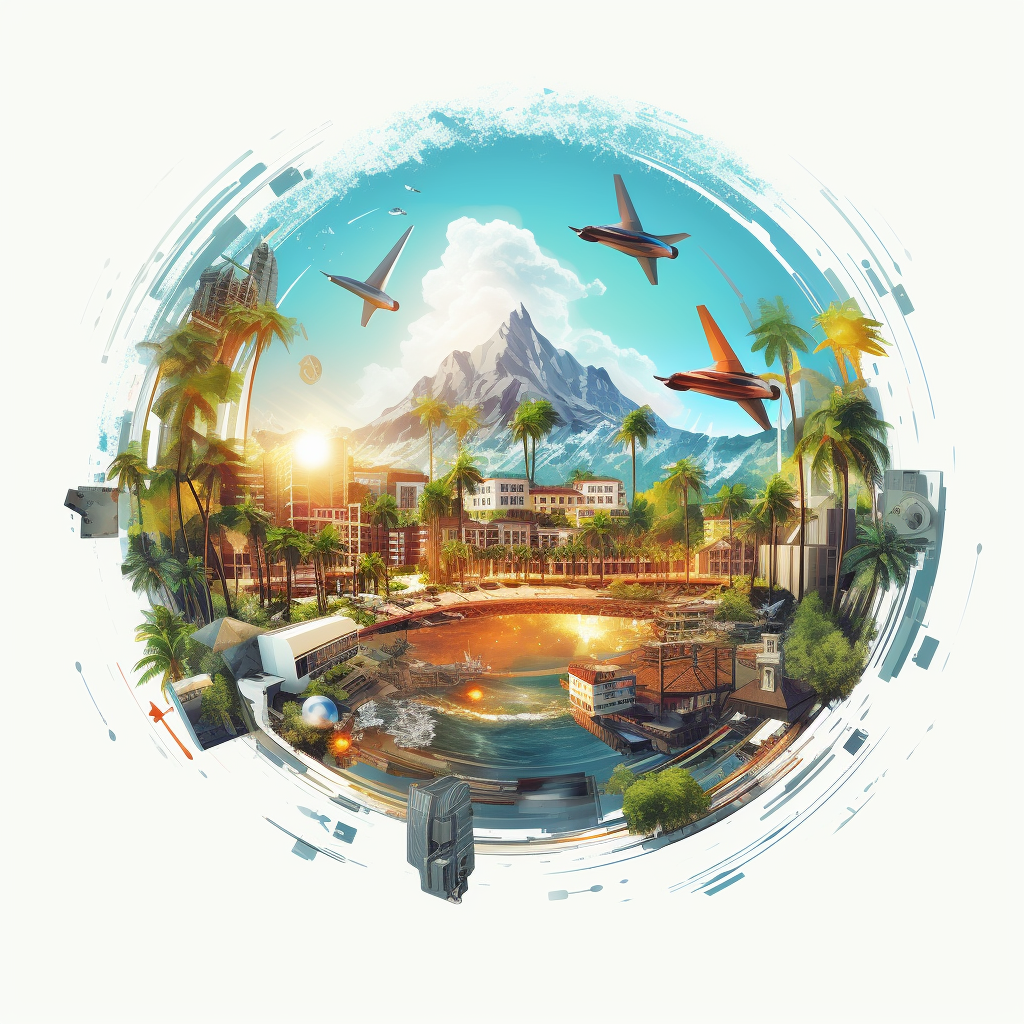NFTs and Tourism

How Can NFTs Be Used in the Tourism Sector?
Non-Fungible Tokens (NFTs) have become a hot topic in recent years. NFTs are digital assets created on a blockchain platform. Each NFT is unique and non-interchangeable, unlike Bitcoin and other cryptocurrencies, which are fungible.
NFTs have many applications, and one of them is in the tourism sector. The use of NFTs in the tourism sector can help enhance the experience for travelers while strengthening the economy in the industry. In this article, we will take a closer look at how NFTs can be utilized in the tourism sector.
Unique Travel Experiences
One of the most obvious ways NFTs can be used in the tourism sector is by creating unique travel experiences. NFTs can serve as digital passports that grant owners access to exclusive locations and activities. For example, an NFT could lead the owner to a private museum that is not normally accessible to the public or grant access to a special area in a theme park. The use of NFTs can also help promote tourism in lesser-known areas by granting owners exclusive access to remote locations.
Authenticity and Verification
Another area where NFTs can be employed in the tourism sector is in authenticating experiences. NFTs can be used to verify the authenticity of experiences such as visiting historical sites or purchasing genuine artworks. This is particularly important as the tourism industry often faces issues of counterfeiting and fraud. By using NFTs, visitors can be assured that they are having a genuine experience and that their investments are legitimate.
Digital Souvenir Trading
Souvenir trading is a significant part of the tourism sector, and NFTs can help take this trade to a new level. NFTs can serve as digital souvenirs that visitors can take home as mementos of their travels. These digital souvenirs can be anything from photos and videos to 3D models of landmarks and buildings. By using NFTs, visitors can easily store and share their digital souvenirs with others.
Supporting Local Communities
Another way NFTs can be utilized in the tourism sector is by supporting local communities. The use of NFTs can help boost the economy in lesser-known communities by granting owners access to exclusive activities and locations. By creating unique travel experiences in these communities, more visitors can be attracted, leading to higher income for the residents. NFTs can also support local artists and artisans by selling digital artwork and craft products as NFTs.
Enhanced Transparency
Transparency is a crucial issue in the tourism sector. Visitors want to ensure that they are paying appropriately for their experiences and services and that their payments are not going to dishonest companies. The use of NFTs can help increase transparency in the industry. NFTs can serve as payment receipts and vouchers that allow owners to track the transactions in detail.
Environmental Conservation
The tourism sector has a significant impact on the environment, with many attractions and sites being damaged due to the massive influx of visitors. The use of NFTs can help improve environmental conservation in the tourism sector. NFTs can be used as digital access passes that grant visitors access to natural areas such as national parks and beaches. By limiting the number of visitors, the ecological footprint can be reduced, which, in turn, can help protect the environment.
Conclusion
The use of NFTs in the tourism sector can help enhance the experience for travelers while strengthening the economy in the industry. NFTs can serve as digital passports granting owners access to exclusive locations and activities, verifying the authenticity of experiences, promoting digital souvenir trading, supporting local communities, increasing transparency, and improving environmental conservation.
However, it is important to note that implementing NFTs in the tourism sector can also present challenges, such as the security of the platforms where NFTs are traded. It is important for the industry to approach the use of NFTs carefully and responsibly in order to maximize the benefits while minimizing potential risks.


